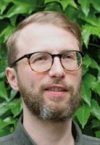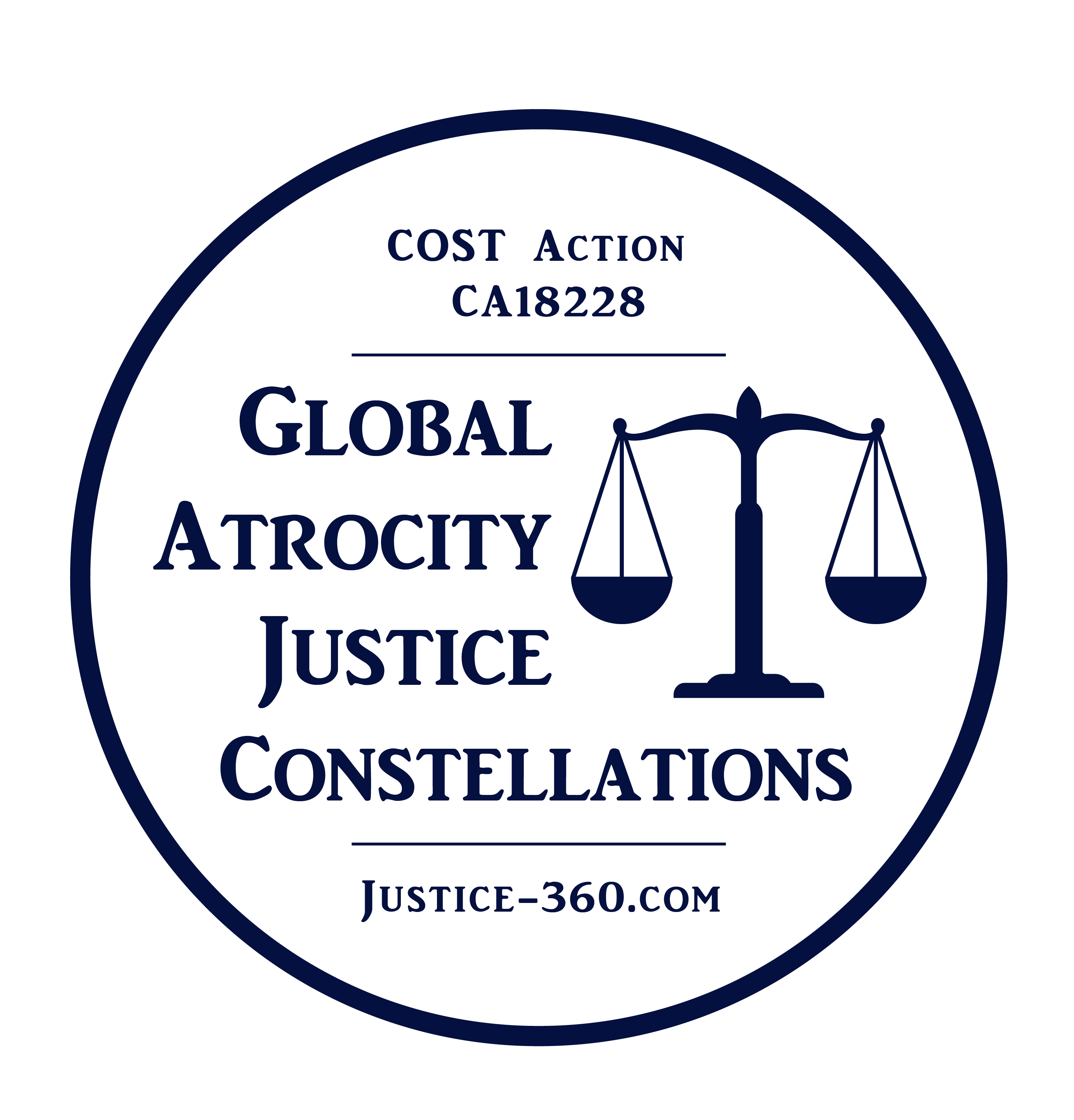Denmark and the fight against international crimes: From international investments to bureaucratic marginalization.
Author: Prof. Mikkel Jarle Christensen
The core idea of the JUSTICE360 project is to analyze how the fight against international crimes has been received, understood and had impact in national jurisdictions and societies more generally. As part of the collective endeavor to build a better understanding of these dynamics, we will publish blogs that analyze the reception and impact of international criminal law in different countries, or sometimes regions as part of a comparative effort. Some of these blogs build on previously published research and others will showcase new results from the JUSTICE360 project. The idea is to build and easily accessible platform for knowledge sharing on how international criminal justice has been received and had impact in national contexts. These results are important not only for understanding the global status of the fight against such crimes, but also for situating the international criminal courts in a larger context where they depend on the cooperation of these same states.
The Danish prosecution and international investments in the 1990s and 2000s
As the ad hoc international criminal tribunals were created in the mid1990s, the Danish police and prosecution invested in different international practices. This investment was partly related to the political level as Denmark supported the creation of the International Criminal Court(ICC) and seconded staff to the ad hocs. In the prosecution service, international initiatives were supported in particular by Director of Public Prosecutions (1995-2007), Henning Fode, who also served as the vice president of the International Association of Prosecutors (IAP). Fode created the international office in the prosecution service in 2002 and the specialized unit for international crimes (SAIS) in 2003. The burning platform for the creation of this unit was the case against Iraqi army leader, Nazar al-Khazraji, who was put in house arrest in his home, but escaped in March 2003. Despite the suspect of this case escaping Danish authorities, the unit was maintained and worked on cases related to some of the conflicts of the decade from where refugees came to Denmark, in particular the conflicts in the former Yugoslavia and Rwanda. The unit for international crimes was staffed with experts who typically had international experience, in some cases directly from the ad hocs. Working on cases regarding suspected war criminals in Denmark, the unit cultivated informants in diasporas as well as initiated screenings of expatriate communities to find potential suspects. The unit also had strong links to other national war crimes units maintained bilaterally as well as through the Genocide Network hosted by Eurojust. However, in terms of concrete cases, the unit has only brought a few cases before the Danish courts.
As a result of the specialization of its staff and its unique focus on international crimes, the work done in the unit has not been highly valued in the rest of the system. In the prosecution service more generally, good prosecutorial work is linked to values of effectiveness and efficiency in the handling of cases, individual prosecutors often going into court several times a week, often on different cases. To be eligible for promotions and to move up in this system, the main value is related to being flexible and able to handle the cases that lands on ones desk, regardless of the type of case. Whereas some targeted specialization is seen as a quality in the criminal justice bureaucracy, it is usually taken in small dosages, professionals rotating between positions as part of an successful career trajectory. As a result of systemic value attributed to the lifting of different cases efficiently, international cases are often seen as problematic and as giving cause to more trouble than they are worth, and prosecutors have been know to carve out cases to avoid any non-essential international links. The work of the unit specialized in international crimes goes completely contrary to this generalist orthodoxy, also because the work of the unit implies having to actively create new cases through screening and building relations to potential informants. As a result, the prosecutors in the unit have sometimes been seen as not pulling their weight because they “never set foot in a courtroom”. Actively going to look for new, complex and international cases goes against the grain of an organization where the ideal prosecutor is one that lifts the cases already in the system, and lifts his or her weight regardless of the type of case.
In recent years, an increased focus on output goals and the statistical measurement of police and prosecutorial productivity has exacerbated the difference between the orthodox ideals of the good prosecutor and units working exclusively with international crimes. Output goals focus on particular parts of the prosecutorial work, for instance decreasing the average time spent on cases, maintaining or increasing conviction rates, or increasing productivity, sometimes with regard to types of cases that have particular political attention. Since there are few cases related to international crimes, and they require significant resources in terms of investigation and prosecution, international cases do not add much to the productivity of the prosecution service, a productivity that has to be reported to the political level and upon which the bonuses of management depends. In addition to these wider systemic changes, linked to the influx of public management norms and increased political oversight manifested through output measurement and performance reviews, the leadership of the prosecution service has changed. The focus of Henning Fode on actively helping develop international networks and contacts has not been reproduced. Current leadership has been less invested in developing an international presence and supporting international cooperation, in particular in relation to cases that are not pivotal for the measurable productivity of the system.
Current status: The further devaluation of international work
As the management of the Public Prosecution Service changed, and new public management intensified in the Danish police and prosecution, and seeped down through the system, working with international crimes became further devalued. Political winds also changing, becoming focused more on controlling the public sector through defining output goals and international cooperation taking a backseat.Without a clear political focus or support from national management, the unit working with international crimes was pushed further into the background. In 2012, the unit was folded into the larger unit working with economic crimes, to the frustration of professionals who worked in what was previously an independent international crimes unit with its own management. The experience staff that had worked with international crimes, some of them in the ad hocs, and who had strong international networks to other war crimes units, were moved to other cases considered more important and that counted towards annual performance reviews, typically concerning economic crimes. The unit tasked with international crimes still exists, but has very different characteristics than the one that was created in the early 2000s. In the criminal justice bureaucracy, the fight against international crimes has been increasingly marginalized and does is not seen as having much professional, bureaucratic or political value.
In the past decade, the impact of international criminal law in the Danish system and society has been indifferent and weak. There are academics engaged with international crimes, probably more than there are practitioners working on such cases in the country. Academics mainly work on the international criminal courts and publish internationally. A few newspapers and journalists do keep track of cases in the international criminal courts, but mainly the large more controversial decisions.With regard to the political level, international criminal law remains at the margins of priorities. Denmark still supports the ICC, but was somewhat skeptical with regards to aspects of the Kampala Amendment, supporting for instance the restrictive position that the court would not have jurisdiction over the national territory or over nationals of state parties that had not ratified the amendment. However, the country is currently in the process of ratifying. The Danish state has also supported new initiatives, providing funding for instance to the Commission for International Justice and Accountability (CIJA), a NGO that collects evidence of international crimes, for instance in Syria, with the hope of being able to provide evidence for future court cases. The support for initiatives abroad, but skepticism and marginalization of efforts at home, point towards a national system that perceives international crimes as a matter of foreign relations.At present, the political and institutional preferences are not supportive of international criminal justice as a priority in Danish system. When international criminal law reaches the national border and comes into conflict with other policies or bureaucratic practices, it is considered an irritant and is devalued accordingly. The Danish criminal justice system is formally ready to build cases on international crimes, but would strongly prefer not to.
For notes and further analysis see the author’s article “International Prosecution and National Bureaucracy: The Contest to Define International Practices Within the Danish Prosecution Service,” Law & Social Inquiry 43(1): 152-181.
About the author:

Prof. Mikkel Jarle Christensen is a Professor with Special Responsibilities at the Faculty of Law of the University of Copenhagen, Academic Coordinator of the Centre of Excellence for International Courts, Principal Investigator of the European Research Council-funded The Global Sites of International Criminal Justice (JustSites), and Chair of the COST Action "Global Atrocity Justice Constellations" (JUSTICE-360).
